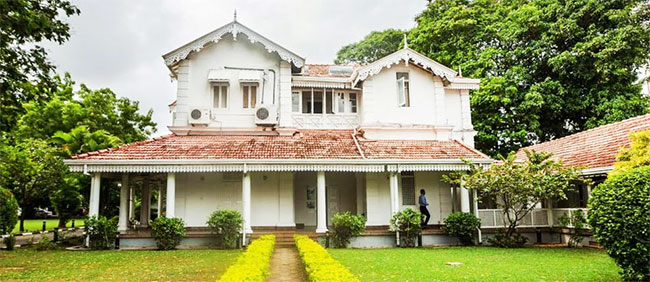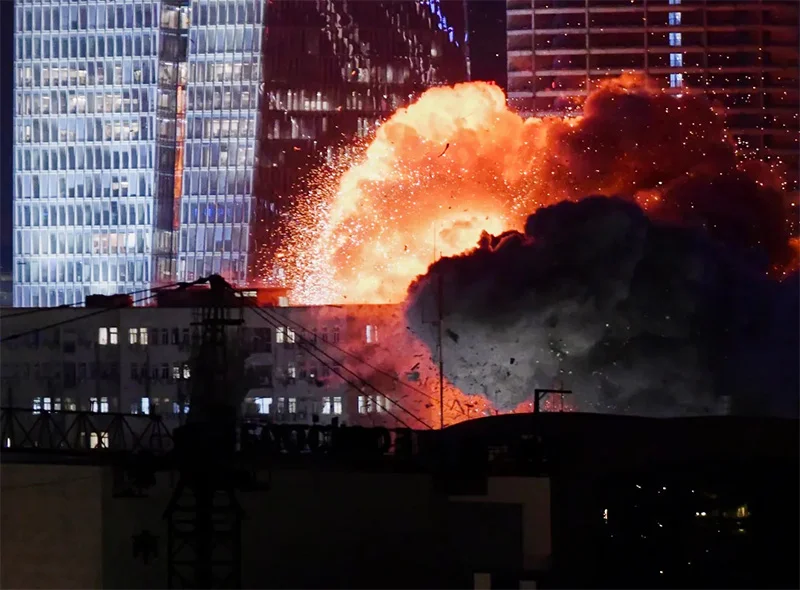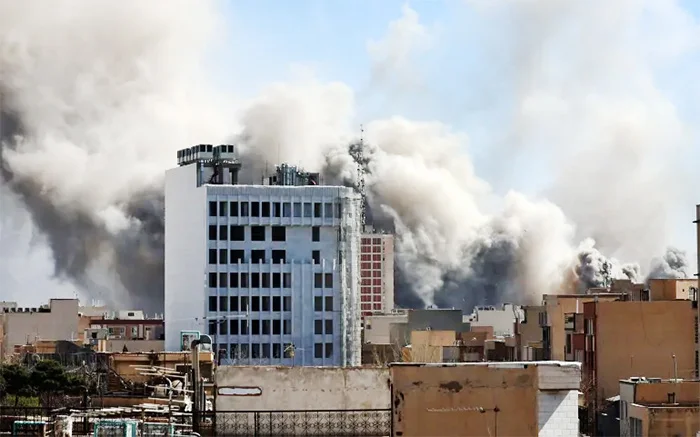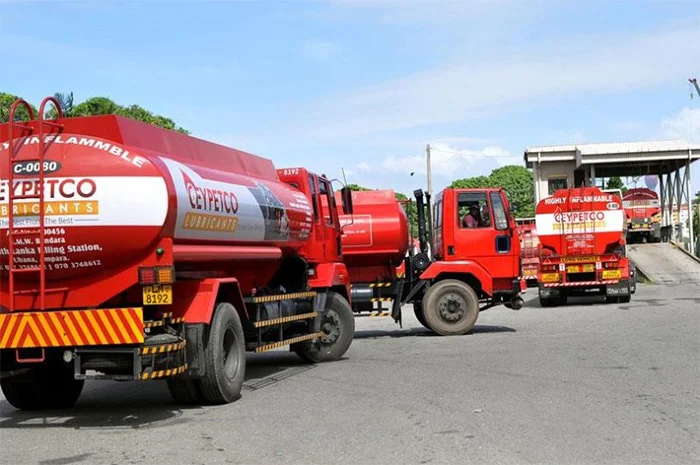News
Kadirgamar Institute criticises AI for bias

The Lakshman Kadirgamar Institute of International Relations and Strategic Studies (LKIIRSS) has strongly denied Amnesty International’s latest report on Sri Lanka titled “From Burning Houses to Burning Bodies: Anti-Muslim Violence, Discrimination and Harassment in Sri Lanka” (October 2021). Waruni Kumarasinghe and Dinithi Dharmapala of the Strategic Communications Unit, LKIIRSS, issued the following statement: “The AI’s overall argument is that Muslims in Sri Lanka are an oppressed minority, subjected to state-sponsored violence and systematic discrimination. The argument, as will be explained in a moment, is deeply flawed.
According to its official website, Amnesty International’s mission among other things, is to “mobilise the humanity in everyone and campaign for change so that we can all enjoy our human rights.” If this is the case, then AI has an obligation to be fair and balanced when reporting on the human rights situation in a particular country. Furthermore, at a time when extremism is on the rise everywhere in the world, it is incumbent on organisations such as AI, to refrain from exacerbating or stoking ethnic or religious passions by one-sided or partial portrayals. For all these reasons, it is vital to take a closer look at AI’s new report.
As evidence for its claims, the report discusses the anti-Muslim riots that have taken place in Sri Lanka since 2014—i.e. Aluthgama (2014), Ginthota (2017), Digana (2018) Ampara (2018)—and also, a) the proposal to ban the Niqab, b) cremation/burial controversy in regard to Covid-19 death, c) failure to reform the Muslim Marriages and Divorce Act of 1951, d) purported efforts to ban Madrassas and also the importation of Muslim religious books and some other matters.
The flaw in the report is that its conclusions do not follow from its sample of evidence. In other words, there is ample evidence, as revealed by the relevant statistics, that the Muslims in Sri Lanka are a thriving and prosperous community. Furthermore, enormous state resources have been channelled especially to the Eastern Province where Muslims are the majority, to facilitate development of roads, bridges, hospitals, schools, and so on, resulting in tangible benefits to the people of those areas. Such a situation is inconsistent with a State systematically discriminating against Muslims.
In order for a general reader, especially an international reader, to gain an idea of the position of Muslims in Sri Lanka it suffices to consider, a) the trends in population growth, b) foreigners’ observations of the conditions of life of Muslims in Sri Lanka and c) the relative economic strength of the community as a whole. So, let’s turn to these matters, keeping in mind that of Sri Lanka’s population of roughly 21 million, 75% is Sinhalese, 15% Tamil and 9% Muslim.
With regard to population growth, the Department of Census and Statistics, after surveying the trends from 1911-2012, states, “The Sri Lankan Moor community has recorded a phenomenal growth over these years.” (Census of Population and Housing 2012, www.statistics.giv.lk , p.142). To turn to observations by foreigners, Roomana Hukil, a scholar who was working for the international NGO “Peace and Conflict Studies” in 2014, says: “Post 2009, Muslims started flourishing in their business enterprises, trade and commerce units in urban spaces. They gained a foothold in the Sinhalese army and acted as significant contributors to the economy.” (Roomana Hukil, “Muslims in Sri Lanka: Four Reasons for their Marginalisation,” 31 October 2014, www.ipcs.org .)
With regard to the relative economic strength of the community, Professor G.H Peiris, one of Sri Lanka’s foremost academics after surveying the manufacturing sector for the period 1980-1999 has observed that the Muslims have done even better than the Tamils, the second-largest minority. He says,
“It is, of course, known in general terms that, despite the continuing political instability, some of the largest manufacturing firms in Sri Lanka—those that have remained in the forefront of profitability throughout these two decades—are owned by investors from the minority ethnic communities including Sri Lankan Tamils….[Moreover] in light of the evidence indicating that certain investment opportunities in manufacturing were made available to the private sector on the basis of political favouritism, it is likely that among the main ethnic groups in the country, Sinhalese and Muslims have gained substantially more than the Tamils.” (G.H. Peiris, Challenges of the New Millennium, 2006, p. 422)
To repeat, the picture suggested by the above observations is inconsistent with that of the State systematically discriminating against Muslims. It is true that, there have been a number of incidents of anti-Muslim violence in the recent past and it is vital that the reasons for these things be thoroughly examined and addressed. However, from the fact that there have been these incidents it is unreasonable for anyone to suggest that they reveal or reflect systematic discrimination against Muslims in Sri Lanka.
To turn to some of the specific acculled by the report, with regard to the proposal to ban the niqab, it must be said that first and foremost the proposal by the government of Sri Lanka was to ban the burqa not the niqab. It is also important to remember that the origin of the burqa was in middle eastern countries where it was a climate appropriate garment solving the problems of living in deserts i.e. protecting people from fatal sand storms. Sri Lanka’s climate is tropical and hot with periodic monsoon rains, none requiring the protection of a burqa. Easier travel and increased migration is the only reason it has entered Sri Lanka and is not the traditional attire for Muslim women in Sri Lanka. Moreover, the stated intention of the proposal was to ban the full face veil/face covers and did not include other attire of Muslim women, such as the hijab. However, the report insinuates that the proposal reveals a deeper problem, namely, state disrespect for the rights of Muslim women. Moreover, religious head coverings that do not reveal the face have been both a security and an emotive issue in many countries and such bans are in effect today in at least 16 countries in the world, including countries in Europe. So, how does this report make sweeping generalisations, based on this proposal, about the state of Muslim women’s rights in Sri Lanka?
To such a suggestion, one can also state that the situation of Muslim women in Sri Lanka, especially with regard to education, access to health care, right to work, is often comparable to advanced Western countries and better than in many Muslim countries. Sri Lankan women, including Muslim women have enjoyed adult franchise since 1931. Meanwhile, all Sri Lankan women, including Muslim women, have access to free education, free healthcare, and the right to work.
More importantly, AI’s writers have failed to mention that resistance to Muslim women’s rights in Sri Lanka comes primarily from their own community. Fathima Fatheena Mubarak, a scholar at the London School of Economics, quotes the Islamic scholar N.A. Nuhuman’s remarks with regard to this matter as follows:
“It is well known that in Sri Lanka Muslim women are heavily dominated by male chauvinistic ideology than are the women of the other communities….A great majority of religious-conscious Muslim men believe that they are the custodians of their women, and according to this ideology they have religious sanction for this belief. No religious sensitive Muslim male accepts the concept of the equality of women. To them it is un-Islamic.” (Fathima Fatheena Mubarak, “Tradition and Modernity: A Sociological Comparison between Muslim Women in Colombo and London,” 2003, www.etheses.lse.ac.uk , p.75)
To turn to the cremation/burial controversy, since burial of the bodies of Covid-19 patients is now allowed there is no longer a controversy. However, the report insinuates that the fact that there was a controversy at all is proof that Muslims are persecuted in this country. Nothing can be further from the truth. First, even at the height of the controversy, the suggestion was only that patients known to have died from Covid-19 were to be cremated. It was not a blanket ban on burials. So, the right of Muslims to bury their dead was never in question. The only issue was whether it was safe to bury bodies known to have had the virus. Moreover, burial of the dead is a practice among Chritians/Catholics and Buddhists as well and is based on individual choice. By extension of the same argument by AI one can claim the decision also discriminated against Chritians/Catholics and Buddhists!!! The fact is the decision was taken and implemented with equal application to all and not intended to discriminate against a particular community.
Second, one must recall that, when Covid-19 began to spread it was a completely unknown disease and many people were terrified of it. Therefore, even though it may have been insensitive of some people to advocate only cremation for bodies of Covid-19 patients, one cannot immediately conclude that they did so because they were against Muslims. One must entertain the possibility that they were genuinely concerned that bodies known to have had the virus might contaminate the ground including the groundwater and thereby be a threat to the living. Since burial is now allowed, it shows that Sri Lankans have the ability as well as the democratic institutional structure with which to correct themselves if and when they make mistakes.
Next, the purported failure to reform the Muslim Marriage and Divorce Act of 1951. If the Act is to be reformed the impetus for it must first come from the Muslim community itself, and even there it cannot be limited to just ‘activists’ and NGOs but must be broad-based and include vocal support from the Muslim political parties. Otherwise, the accusation will be leveled that the Sinhalese majority is yet again trying to impose its will on the Muslims. Once there is such broad-based support from the Muslim community for the reforms in question, there is no doubt they will take place.
Finally, the accusation that the Government has tried to ban Madrasas and also obstruct the importation of Muslim religious books by declaring that such books must first be reviewed by the Defence Ministry. The report claims that this is a violation of the rights to freedom of thought and conscience as well as the right to practice one’s religion guaranteed by the relevant provisions of the Sri Lankan Constitution as well as international covenants.
However, as the Easter Sunday attacks showed, and even more recently the attacks in Norway (where a suspected Islamist extremist killed five persons with a bow and arrow) and in the U.K. (where a suspected Islamist stabbed to death a Member of Parliament) show, Islamist extremism is not going away and it is the duty of every State to take every reasonable measure to confront it. It is not in dispute that, radical religious preachers are one of the prime means through which Islamist extremism is propagated.
Therefore, it is reasonable that some measures be taken to monitor and regulate such persons and/or materials. In any event, from the fact that the Sri Lankan State has considered such measures it does not follow that the State is bent on attacking the freedom of thought and conscience of Muslims in general as the AI report seems to suggest.
The past 50 years have shown that every ethnic community in Sri Lanka has some issue to be aggrieved about, some real and some a matter of perception. Reconciliation is very much a work in progress. However, biased accounts that do not reflect ground realities only serve to sow discord and suspicion which hardly helps to heal wounds and help all communities live in harmony. Allegations of systematic discrimination, where none exists, do not help at all.
Overall, AI’s report is one-sided. Given its credo of enhancing and advancing the human rights of all persons, AI should have taken pains to present a more balanced and fair portrayal of the situation of Muslims in Sri Lanka.
News
Israel resumes attacks as Iran vows to avenge supreme leader’s death

* Iran begins 40-day mourning after Khamenei killed in US-Israeli attack
* President Pezeshkian condemns killing as ‘a great crime’
Iran has begun 40 days of mourning after Supreme Leader Ayatollah Ali Khamenei was killed in ongoing attacks by the United States and Israel, according to Iranian state media.
Top security officials were also killed in Saturday’s strikes, along with Khamenei’s daughter, son-in-law and grandson. The killings mark one of the most significant blows to Iran’s leadership since the 1979 Islamic revolution Al Jazeera has reported.
Iranian President Masoud Pezeshkian condemned the killing as “a great crime”, according to a statement from his office. He also declared seven days of public holidays in addition to the 40-day mourning period.
Reporting from Tehran, Al Jazeera’s Tohid Asadi said people were pouring into the streets of the capital following the news of Khamenei’s killing.
“There will be expected ceremonies,” he said, noting they would likely take place amid continuing bombardment across the country.
Protests denouncing Khamenei’s killing were also reported elsewhere, including Shiraz, Yasuj and Lorestan.
“There will be expected ceremonies,” he said, noting they would likely take place amid continuing bombardment across the country.
Footage aired by Iranian state media showed supporters mourning at the shrine of Imam Reza in Mashhad, with several people seen crying and collapsing in grief, according to Al Jazeera.
The killing also led to protests in neighbouring Iraq, which declared three days of public mourning. In Baghdad, protesters confronted security forces in the heavily fortified Green Zone, which houses Iraqi government buildings and foreign embassies.
Videos verified by Al Jazeera showed demonstrators waving flags and shouting slogans, with witnesses saying some were attempting to mobilise towards the US Embassy. Footage also showed protesters blocking vehicles at a roundabout near one of the entrances to the area.
There was also a protest in the Pakistani city of Karachi, where footage, verified by Al Jazeera, showed people setting fire to and smashing the windows of the US consulate.
However, there have also been reports of celebrations in Iran, with the Reuters news agency quoting witnesses as saying some people had taken to the streets in Tehran, the nearby city of Karaj and the central city of Isfahan.
Meanwhile, the official IRNA news agency reported that a three-person council, consisting of the country’s president, the chief of the judiciary, and one of the jurists of the Guardian Council, will temporarily assume all leadership duties in the country. The body will temporarily oversee the country until a new supreme leader is elected.
Ali Larijani, the head of Iran’s Supreme National Security Council, accused the US and Israel of trying to plunder Iran, in an interview aired on state TV.
He also called on Iranians to unite. “Groups seeking to divide Iran should know that we will not tolerate it,” he added.

Smoke rises over central Tehran following ongoing U.S.–Israeli strikes on Iran yesterday.[EPA]
Khamenei assumed leadership of Iran in 1989 following the death of Ayatollah Ruhollah Khomeini, who had led the Islamic revolution a decade earlier.
While Khomeini was regarded as the ideological force behind the revolution that ended the Pahlavi monarchy, Khamenei went on to shape Iran’s military and paramilitary apparatus, strengthening both its domestic control and its regional influence.
Meanwhile, the Islamic Revolutionary Guard Corps (IRGC) pledged revenge and said it had launched strikes on 27 bases hosting US troops in the region, as well as Israeli military facilities in Tel Aviv.
Explosions have continued to be reported in Qatar and the United Arab Emirates, while security alerts are in place in several countries across the region.
US President Donald Trump, in a social media post on Sunday, warned Iran that it would be hit “with a force that has ?never been seen before” if it retaliated.
Iran’s retaliatory attacks since Saturday have targeted Israel and US assets across multiple Middle East countries, including Qatar, the UAE, Kuwait, Bahrain, Jordan, Saudi Arabia and Iraq.
Harlan Ullman, chairman of the strategic advisory firm Killowen Group and an adviser to the Atlantic Council in Washington, DC, said the US may have made a “big mistake” by killing Khamenei.
“Decapitation only works when you get all the leaders, and I don’t think that we got all the leaders,” Ullman said, adding that the US should not expect Iran’s leadership to enter negotiations in the immediate aftermath.
Iranian state media reported on Saturday at least 201 people have been killed in the joint US-Israeli attacks across 24 provinces, citing the Red Crescent. In southern Iran, at least 148 people were killed and 95 wounded in a strike on an elementary girls’ school in Minab on Saturday, with the toll continuing to rise, according to state media.
News
CPC has enough fuel stocks

There would be no delay in fuel shipments scheduled for April and May, the Ceylon Petroleum Corporation (CPC) assured yesterday.
Addressing a media briefing in Colombo, CPC Chairman D.J. Rajakaruna said Sri Lanka’s fuel supplies did not originate from the present conflict zone in West Asia and, therefore, supplies to the Corporation would not be disrupted.
He noted that the relevant consignments were due to arrive from India and Singapore as planned.
“We are making this statement responsibly. There is no need for the public to queue up for fuel. Distribution was not originally scheduled for Sunday (01), but due to increased demand, we have deployed all distribution staff to continue fuel issuance. Although Monday (02) is a Poya Day, fuel supplies will continue without interruption,” he said.
The Chairman added that all filling stations had been instructed not to dispense fuel into cans or barrels, warning that legal action would be taken against those attempting to purchase fuel in bulk containers for resale.
News
Lanka, Pakistan strengthen ties at 13th JEC

The 13th Session of the Sri Lanka–Pakistan Joint Economic Commission (JEC) was successfully held recently in Colombo, reinforcing the strong and longstanding economic and diplomatic ties between the two countries.
The Sri Lankan delegation was led by Wasantha Samarasinghe, Minister of Trade, Commerce, Food Security and Cooperative Development, while the Pakistani delegation was headed by Haroon Akhtar Khan, Special Assistant to the Prime Minister of Pakistan for Industries and Production. The session concluded with the signing of the Agreed Minutes by both Co-Chairs, formalising cooperation across multiple sectors.
The Pakistan High Commission in Colombo said that in the IT and digital economy, both sides agreed in principle to establish a Joint Working Group on IT and telecommunications, promote collaboration in emerging technologies, and support each other in international digital forums.
Industrial cooperation was a key focus, with discussions on expanding trade in chemicals, polymers, engineering goods, glassware, surgical instruments, and pharmaceuticals. Sri Lanka invited Pakistani pharmaceutical companies to explore investment opportunities in designated pharmaceutical zones. Both countries also agreed to strengthen collaboration in Export Processing Zones and enhance support for small and medium enterprises through their respective development agencies.
Significant progress was made in agriculture and livestock, including cooperation on meat exports, livestock farming, seed certification, sanitary and phytosanitary harmonisation, pest risk analysis, and capacity building. Procedures for the export of Sri Lankan pineapples and avocados to Pakistan were advanced. Both sides explored electronic phytosanitary certification (ePhyto), blockchain-based seed traceability systems, and increased trade in agro-commodities such as rice, sesame, and onions.
In education, the JEC emphasised academic and research cooperation, faculty and student exchanges, accreditation and quality assurance, and promoting Pakistan as a higher education destination for Sri Lankan students. A Joint Working Group on Education and Science was proposed, alongside renewal of several institutional Memoranda of Understanding.
Cooperation in science, technology, and innovation will continue under existing bilateral frameworks, with plans for joint research in advanced materials, biotechnology, climate change mitigation, and emerging technologies. Collaborative research projects, student exchanges, and co-authored publications were highlighted as key initiatives.
Health sector collaboration will focus on joint research, academic exchanges, regulatory cooperation on therapeutic goods, capacity building, fast-track registration of essential medicines, public-private partnerships, epidemiological surveillance, and coordinated responses to disease outbreaks.
Maritime cooperation was also discussed, with Pakistan offering technical expertise, training, and industrial collaboration through its shipbuilding institutions. Both sides explored enhanced maritime connectivity, including transshipment, port cooperation at Karachi and Gwadar, direct shipping routes, logistics integration, and maritime training programs.
Commerce secretary-level talks reviewed the progress of the Pakistan–Sri Lanka Free Trade Agreement (PSFTA), assessing current implementation and identifying measures to further enhance bilateral trade and economic cooperation.
On the sidelines, Special Assistant Haroon Akhtar Khan held discussions with Sri Lankan Cabinet members on collaboration in industry, labor and foreign employment, and health sectors.
Both delegations expressed satisfaction with the outcomes of the 13th JEC and reaffirmed their commitment to regular engagement and effective implementation of agreed initiatives. It was mutually agreed that the 14th session will be held in Islamabad, with dates to be confirmed through diplomatic channels.
-

 Opinion4 days ago
Opinion4 days agoJamming and re-setting the world: What is the role of Donald Trump?
-

 Features4 days ago
Features4 days agoAn innocent bystander or a passive onlooker?
-

 Features6 days ago
Features6 days agoBuilding on Sand: The Indian market trap
-

 Opinion6 days ago
Opinion6 days agoFuture must be won
-

 Features5 days ago
Features5 days agoRatmalana Airport: The Truth, The Whole Truth, And Nothing But The Truth
-

 Business6 days ago
Business6 days agoDialog partners with Xiaomi to introduce Redmi Note 15 5G Series in Sri Lanka
-

 Business5 days ago
Business5 days agoIRCSL transforms Sri Lanka’s insurance industry with first-ever Centralized Insurance Data Repository
-

 Sports7 days ago
Sports7 days agoCEA halts development at Mandativu grounds until EIA completion













